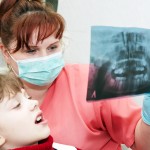
This review of whether parents’ presence in the room influences children’s behaviour, anxiety and fear during dental treatment included 16 studies. The findings suggest that parents’ presence in the operation room does not influence children’s (up to 12 years old) behaviour, anxiety and fear during dental treatment. However the included studies are all at high risk of bias so the certainty of the evidence is very low.
[read the full story...]




